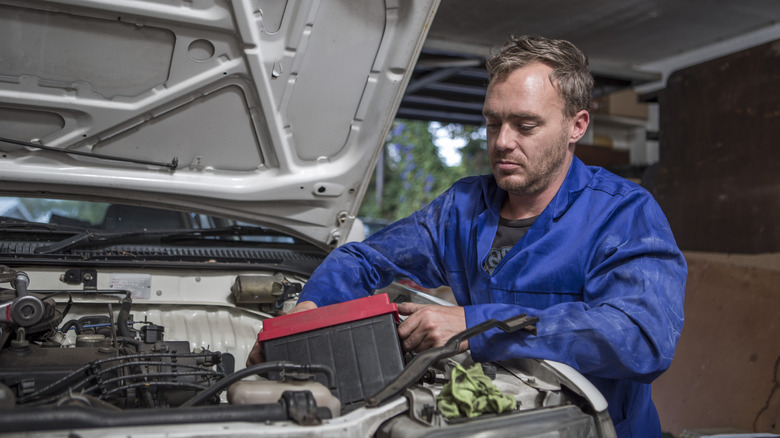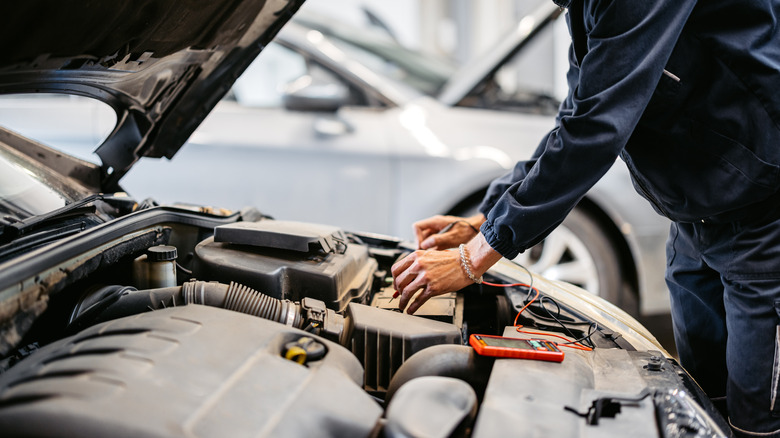
No one wants a dead car battery. Few things are as frustrating as getting one of those tell-tale signs of a dead battery when trying to start your vehicle. If you’re looking for a more budget-friendly solution (or can’t afford a new one), a used car battery might be an option. New car batteries can be quite costly, making a used battery a more economical and environmentally friendly choice.
Advertisement
Salvage yards and other sellers often offer a range of used batteries, some capable of providing years of service. However, just because these batteries are for sale doesn’t mean they’re necessarily safe. While the price might be attractive, buying a used battery carries its risks. Its history may be unknown, and gauging how much life is left can be challenging at a glance. Without proper inspection, a used battery might fail soon after purchase or even present safety risks. Here’s what you should know.
Key factors to consider before buying a used car battery

Reliability is a primary concern when buying a secondhand battery. A battery’s effectiveness can vary significantly based on several factors, including its age, condition, and weather conditions. Some used batteries may still function nearly as well as new ones, while others may be nearing their end. Furthermore, if the battery has experienced damage, there can be risks of fire or explosion. Therefore, precautionary measures are essential for safety and ensuring longevity.
Advertisement
Another important consideration is the battery’s age. Typically, car batteries have a lifespan of three to five years; older batteries are less likely to deliver consistent long-term performance. You can find a battery’s age by looking for a date stamp. Battery manufacturers often use a letter-and-number code, where the letter indicates the month (A for January, B for February, etc.) and the number signifies the last digit of the year of manufacture. (For example, “C9” would indicate it was made in March 2019.) Naturally, opting for a newer used battery increases the likelihood of better performance.
The importance of warranties and inspections

When considering a used car battery, look for visible signs of corrosion or other indicators of poor condition. Over time, corrosion can form around the terminals, appearing as a green, orange, or blue substance that hampers the battery’s ability to hold a charge and indicates internal damage. Additionally, inspect the battery casing for any cracks or leaks, which suggest wear that could lead to failure. Testing the battery before purchasing—using a voltage meter or consulting a technician—can further assure its condition.
Advertisement
Even though it’s used, some sellers may provide a limited warranty on the battery. This can be helpful in case the battery fails shortly after purchase. Prior to buying, check if the salvage yard or seller includes any warranty coverage. Also, ensure that your vehicle’s warranty permits the use of a used battery, as certain warranties come with specific battery requirements. Ultimately, buying a used car battery can be a sensible financial choice if done carefully. By meticulously assessing age, condition, and warranty options, buyers can reduce risks and enhance the value of their investment.




